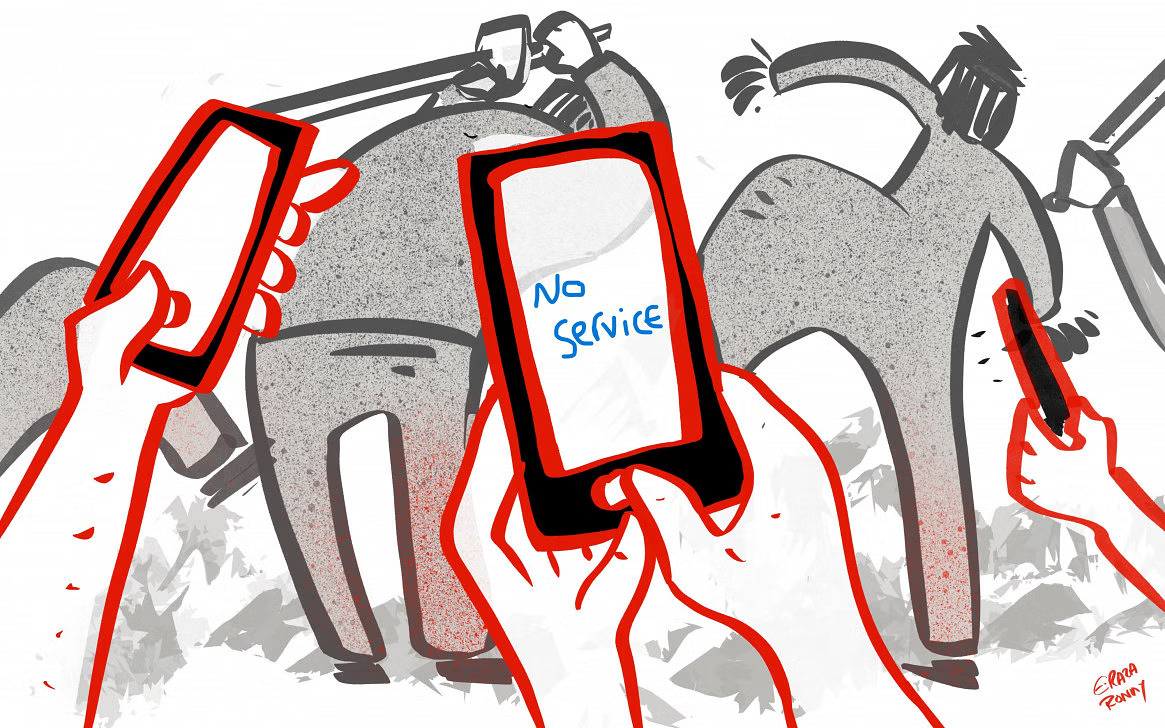Beyond 'digital' and 'smart': Defining Bangladesh's ICT brand

In today's world, countries that prioritise Information and Communication Technology (ICT) have each chosen distinct positions for themselves. This positioning might be as innovators, manufacturers, providers of affordable labour, or champions of quality and luxury. These choices are not just about economic strategy; they shape the very identity of a nation in the global market.
Take China, for instance. Historically, it was known for making products "cheaper and better." Now, the country is shifting toward "affordable innovation," reflecting a maturing economy that still values cost-effectiveness but is also pushing the boundaries of technological advancement. Scandinavian countries, on the other hand, have positioned themselves as "inclusive talent hubs," inviting thousands of entrepreneurs from across the globe to work within their borders. Estonia's e-residency program is a prime example, allowing anyone in the world to establish and manage an EU-based company entirely online. Singapore's tech scene is driven by a philosophy of "if you make it, we are interested in it," staying alert to new ideas and ensuring they are available within and from Singapore. The US extends its age-old national motto, the "land of opportunity," to its tech sector, offering endless possibilities for innovation and growth. Japan is synonymous with "superior quality," German engineering stands for "robustness," and Switzerland epitomises "luxury."
Each of these countries tells a different story; each has a unique brand. Some have consciously chosen their angle, while for others, it has evolved organically. But every nation with a stake in ICT has a brand—except, perhaps, Bangladesh.
When the last government came to power, it sought to align itself with the global wave of technological advancement. Part of this was driven by a desire to create a new thrust sector, while part was motivated by the worldwide surge in technological innovation. In 2008, the then-Prime Minister coined the term "Digital Bangladesh." At its core, the philosophy aimed to ensure democracy, human rights, transparency, accountability, justice, and the efficient delivery of government services through the extensive use of technology.
In 2022, the government introduced the concept of "Smart Bangladesh." This time, the focus was on building a SMART country by 2041, with an emphasis on smart citizens, a smart economy, smart governance, and a smart society. However, from a neutral, apolitical perspective, both terms, though catchy, were somewhat ambiguous and did little to establish a clear national brand.
"Digital Bangladesh" and "Smart Bangladesh" did see some success. Access to the internet increased significantly, and the digital divide between metro areas, cities, and townships narrowed. Events like Digital World, SoftExpo, and SmartPhone Expo became regular occurrences, showcasing the industry's potential and progress. During this period, Bangladesh also saw a remarkable rise in freelancers. With over 10 lakh freelancers, the gig economy positively impacted self-employment, remittances, and overall economic empowerment. The start-up ecosystem flourished, entrepreneurship gained momentum, and venture capital became more accessible to young entrepreneurs.
While these initiatives contributed to some fragmented progress, they fell short of creating a clear and precise national brand. The "Smart Bangladesh" roadmap, in particular, was notably vague. The Smart Bangladesh Masterplan, available online, outlined a focus on artificial intelligence, machine learning, robotics, blockchain, nanotechnology, 3D printing, and other futuristic innovations. However, there was a clear disconnect between ambition and action. Most initiatives were centred around building infrastructure, whether civil constructions or technological. These expensive projects were not backed by any precise plan. For instance, Sheikh Hasina Software Technology Park in Jessore is a high-end, expensive, and lavish establishment aimed at attracting foreign direct investment in software development and supporting local programmers; unfortunately, the goals never materialized.
Similar stories transpired for other software parks in Chattogram, Kaliakoir, Rajshahi, and beyond. The government declared 40 mega projects, aiming to increase the ICT sector's share of the national economy to at least 20 percent by 2041. Unfortunately, none of these initiatives managed to attract a notable volume of foreign investment.
Despite the attention garnered by "Digital Bangladesh" and "Smart Bangladesh," neither concept effectively communicated a coherent and purposeful brand for Bangladesh to the outside world.
Several glaring questions remain unanswered: what message do we want the world to hear? Do we want to position ourselves as a hub of trained human resources? Are we aiming to become a manufacturing powerhouse? Should we focus on innovation, bolstering our R&D capabilities? Or are we looking to build a long-term strategy around research and the accumulation of Intellectual Property Rights (IPR)?
Frankly speaking, to this date, our ICT sector doesn't seem to know where it should be heading. We are not an investable brand, so the obvious question is, where do we go from here?
The answer is simple—onward and forward! We must move past the years of fruitless efforts and begin shaping our industry right away. This time, we need a clear focus and purpose.
To begin with, we need to stop investing in expensive infrastructure projects that almost never achieve their intended results. We need to democratise innovation on all fronts. Separate funds should be allocated to public and private universities for research and innovation. Researchers, students, and entrepreneurs should be able to manage seed funding from their respective universities. The IPs generated using these funds should be shared by innovators and the universities; this way, universities would also have an incentive to promote and support new ideas and inventions.
Bangladesh must focus on ground-breaking innovations, cheaper and better than others. It's not just about doing the same thing that China does at a lower cost, but we should focus on making things that China and other competitive countries cannot make. Reduced costs will give us a competitive edge, helping us stay ahead of others, but they will also allow us to penetrate high-potential markets that remain unexplored due to their limited purchasing power, such as Africa, Central Asia, and Eastern Europe.
Generating original intellectual properties (IP) is a critical element. Moving forward, we can generate revenue through leasing our IPs, ensuring long-term sustainability and profitability for all stakeholders. Drawing interest from foreign investors will depend on many factors, but stability and continued innovation will play a significant role in attracting foreign funds to Bangladesh. Instead of blindly following mature and advanced companies, investment should be encouraged in early-stage start-ups, both by the government and private venture funds.
There is a heightened national spirit in every walk of life. Citizens and policymakers are actively investigating and introspecting. The time for transformation in the technology and ICT sector is now; it's a golden opportunity, one we never had before. It won't be easy, but with relentless pursuit of cost-effective innovation, we may be able to build a name, perhaps even a brand for ourselves—"Bangladesh, the leader in frugal innovation."
Sinha Ibna Humayun works in technology marketing and is a tech enthusiast. He can be reached at sinhaihumayun@gmail.com.
Views expressed in this article are the author's own.
Follow The Daily Star Opinion on Facebook for the latest opinions, commentaries and analyses by experts and professionals. To contribute your article or letter to The Daily Star Opinion, see our guidelines for submission.



 For all latest news, follow The Daily Star's Google News channel.
For all latest news, follow The Daily Star's Google News channel. 


Comments